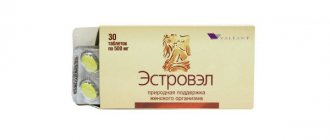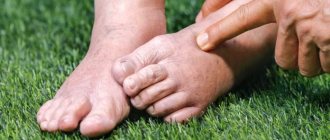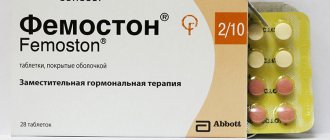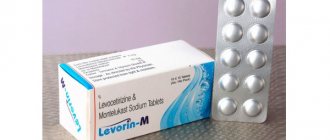Most women between the ages of 45 and 55 experience menopause, and about a quarter of them experience depression associated with reproductive decline and hormonal changes. If you're approaching menopause and have never experienced depression, it's time to learn how to recognize the symptoms.
According to research, women are more susceptible to depression than men. This is due to the constant hormonal fluctuations that occur in the female body, especially during adolescence, pregnancy and menopause. Recently, the problem of postpartum depression has been especially widely discussed, but almost nothing has been heard about depression during menopause.
American doctors, led by the University of Illinois at Chicago, urge women all over the world not to hush up the problem, but to try to solve it in all available ways - through consultations with psychologists and psychotherapists, effective hormonal therapy, physical exercise and a healthy lifestyle.
Why is it sometimes necessary to take antidepressants?
During menopause, a woman suffers from sudden fluctuations in estrogen levels. The lack of this hormone negatively affects mood, as it is involved in the formation of serotonin, a substance that transmits impulses between brain cells.
Loss of interest in life, lack of energy, feelings of hopelessness, thoughts of approaching old age and death - all these are indications for taking antidepressants .
Antidepressants normalize the level of neurotransmitters (serotonin, norepinephrine and others), maintaining a balanced state of the nervous system.
The effect of antidepressants can be felt 2-3 weeks after starting treatment, with the exception of drugs with a “fast” effect.
The body's response to antidepressants is individual , and selecting the ideal remedy for depression may require a long period of experimentation under the supervision of a specialist.
Read about other medications for menopause here.
When to take sedatives
The menopausal period is not always accompanied by a loss of strength and apathy. Some women become too sensitive, aggressive, and cannot control themselves. If there is increased excitability of the nervous system during menopause, it is advisable to take drugs with a sedative effect (sedatives) rather than antidepressants.
The simplest and safest option is soothing herbs, for example:
Stronger remedies – combined herbal-based sedatives:
If they don’t help, you’ll have to turn to synthetic sedatives:
- Afobazole;
- Tenoten;
- tranquilizers (Atarax, Grandaxin);
- barbiturates (Phenobarbital, Barbital, Butizol).
List of effective antidepressants for menopause
Today, the pharmaceutical market can offer a lot of tablets that relieve depression. However, when choosing a medicine, you should rely primarily on the severity of symptoms and the presence of concomitant diseases. Most often, women in menopause are recommended mild antidepressants that have a minimum of side effects and contraindications, these are:
- Paroxetine;
- Fluoxetine;
- Fluvoxamine and others.
The doctor may also prescribe antipsychotics, the action of which is based on blocking the production of substances that cause anxiety and apathy. Such drugs include Sonapax, Etaperazine, etc.
Popular drugs with antidepressant effect
Let's take a closer look at the medications that can be prescribed for depression during menopause.
Fevarin
Fevarin is available in the form of tablets of 50 and 100 mg. It is prescribed for various depressions, as well as obsessive-compulsive disorders.
Side effects:
- nausea in the first two weeks of taking the pills;
- headache;
- disturbances in heartbeat and liver function;
- deterioration of mental state;
- allergic reactions.
You should not suddenly stop taking the drug, as withdrawal syndrome is possible.
At the initial stage of treatment, you need to take 50 mg once a day, in the evening. Subsequently, the dose is gradually increased, but not more than 300 mg per day . It must be corrected by a doctor.
If the mental state does not improve after 10 weeks of treatment, the antidepressant will have to be changed to another.
Paroxetine
Paroxetine is available in 20 and 30 mg tablets.
It is prescribed for:
- severe depression;
- panic disorders;
- severe anxiety.
It is contraindicated in epilepsy.
It is recommended to take these tablets no more than once a day, with meals.
At the beginning of treatment, the dose is 20 mg per day, it can be increased to 50 mg per day (in old age - 40 mg).
While being treated with this drug, it is not recommended to drive a car or engage in hazardous work that requires increased alertness.
Fluoxetine
Fluoxetine is available in capsules of 10 and 20 mg. This is one of the most affordable antidepressants.
It is prescribed for:
- depressive disorders;
- bulimic neurosis;
- obsessive-compulsive disorders.
Capsules should be taken once a day, in the morning. The maximum daily dose is 80 mg (for the elderly – 20 mg), you should start with 20 mg. The result of treatment will be noticeable no earlier than after 1–4 weeks.
These capsules should not be taken if you have diabetes.
You will have to give up driving a car and work that requires increased vigilance.
Cipralex
Cipralex is produced in the form of tablets of 5, 10 and 20 mg.
It is effective for:
- depression of any severity;
- panic disorders;
- obsessive-compulsive disorders.
It is taken once a day, starting with 10 mg. You should not take more than 20 mg of Cipralex per day.
The treatment will bear fruit no earlier than 2–4 weeks after taking the first tablet. When the symptoms of depression disappear, you need to continue taking the drug for six months for the results to last.
You should not suddenly stop taking the drug, otherwise there is a risk of experiencing withdrawal syndrome.
In panic disorders, anxiety may increase during the initial phase of treatment.
You should refrain from driving a car or other machinery.
About how I survived menopause. Don't repeat my mistakes.
Menopause crept up on me unexpectedly and took me by surprise. I had just turned 34 years old and suddenly a slight blues began to come over me, which was very unusual for such a complete optimist, which I was at that time. My lower abdomen began to ache slightly, I saved myself with No-shpa.
And then suddenly I started to change.
My work colleagues began to irritate me wildly, and I immediately took a casual word dropped by someone personally. I started throwing hysterics at my boss, I could cry out of the blue, fortunately I have a good imagination for this and therefore I could always come up with a reason for tears. She fell wildly in love with her neighbor in the country, much younger than herself, and began to dissolve in this love. The “critical days” disappeared, and in the fourth month of their absence I went to the doctor. She underwent tests, endometriosis was suspected, and treatment was started. After another 5 months, hot flashes began, their peak was during working hours. Severe headaches began, and until the age of 34 I had a very thin medical record, and suddenly I had a therapist, an endocrinologist, and a neurologist. I began to seriously think about visiting a psychiatrist. She took sedatives every day. I changed my job, I hated my colleagues at my previous job - a gray mass without an opinion of my own. Although before all these events, she madly loved her job and was friends with almost all the employees. At my new job (I became the head of one of the company’s departments), my colleagues began to shun me from the very beginning. With any deviation in work that occurred due to the fault of colleagues or subordinates, the Hulk woke up in me. Even my children began to fear me. After a year of no “critical days”, a new experienced gynecologist dismissed the diagnosis – endometriosis and I was given a verdict – menopause and, as a result, hormone replacement therapy. At 35 years old. The cause of menopause has never been established.
The best drugs for menopause
As a woman ages, her reproductive system begins to decline. At this time, hormonal changes occur in the body, manifested by unpleasant sensations: increased sweating, burning, vaginal dryness, depressed mood and other manifestations that aggravate life.
The hormones estrogen and progesterone are to blame for these deviations. During menopause, their number in the body decreases, which complicates the life of women at a certain age. Special medications will help replenish lost hormones.
What drugs help fight menopause?
Menopause does not require special treatment. To prevent the female body from withering, treatment focuses on relieving symptoms. Therefore, a woman needs to take special medications, vitamins, and maintain a proper lifestyle and diet. This is the only way to prevent the occurrence of chronic conditions.
To relieve the symptoms of menopause, a variety of drugs have been developed:
- hormonal;
- based on plant estrogens;
- peptide group drugs;
- homeopathic;
Before deciding on any form of treatment, learn about the risks and benefits associated with each drug. If you have serious chronic illnesses, it is better to be treated under the supervision of doctors.
Hormonal drugs
Official medicine considers synthetic hormonal drugs to be the only effective remedy for menopause. They replenish the lack of their own hormones, relieve hot flashes, and prevent premature aging. Another benefit of hormone therapy is the prevention of bone loss.
The main substances in this group of drugs are hormones - analogues of estrogen and progesterone. Hormonal drugs quickly reduce the severity of menopausal symptoms, but, unfortunately, have serious side effects.
Hormonal agents with estrogen:
Improve mental state, stop urinary incontinence.
Hormonal preparations containing the sleep hormone melatonin:
They are prescribed for sleep disorders with night hot flashes.
Hormonal drugs are available only by prescription, so to buy them, you need to see a doctor. He will determine the appropriate dose and duration of treatment. Hormonal medications are strictly prohibited for liver or kidney diseases, cancer and diabetes.
Main menopausal manifestations
According to statistics, menopause in women occurs between the ages of 40 and 50 years. It is associated with depletion of hormone reserves in the body.
Symptoms of menopause manifest themselves differently in each woman, but there are a number of common signs:
- Tides. This is the most common symptom. There is a feeling of heat and redness of the face, neck and chest. Hot flashes mainly occur in the evening and last no more than 5 minutes.
- Night sweats. It is associated with excessive activity of the sympathetic nervous system.
- Tachycardia and arrhythmia. They have the same cause as night sweats.
- Constant feeling of anxiety, irritability, aggression. Such symptoms arise due to sharp fluctuations in the level of female hormones in the body.
- Decreased libido, pain during intercourse, dryness in the vaginal area. The same hormones are responsible for high-quality sex life, the amount of which is significantly reduced.
- Decreased skin turgor and elasticity, the appearance of wrinkles, hair fragility, weight gain. All this develops against the background of hormonal changes.
It is extremely important for women to feel calm, confident and comfortable. Therefore, during menopause you should not neglect sedatives.
Let's take a closer look at which ones are best to take.
Sedatives for menopause: classification
When selecting therapy, it should be taken into account that medications must be effective for both the nervous and cardiovascular systems, because the main menopausal manifestations are associated with them.
The main groups of drugs used for menopause are as follows:
- Hormonal.
- Antidepressants.
- Psychosedatives.
- Anticonvulsants.
- Antihypertensive.
Each group has its own characteristics. It is important to know which sedatives you can take and when they should not be used.
Hormonal drugs for menopause
The main cause of all panic attacks and neuroses is a deficiency of estrogen and progesterone. In this regard, hormone replacement therapy is prescribed.
In the initial period of menopause, it is used as a course, but over time it most often remains on an ongoing basis.
There are 2 groups of hormonal drugs:
- Containing only estrogen. The main form of their release is tablets. Pharmacies also sell capsules, suppositories, ointments and patches. These are drugs such as Estrofem, Divitren, Divigel, Kliogest, Sigetin.
- Combined - estrogen-progesterone. These include Trisequenax, Divina, Klimonorm.
Quite popular are estrogen-containing plant-based preparations, or phytoestrogens: Estrovel, Klimadinon, Remens, Klimaktoplan. They can be purchased at pharmacies without prescriptions.
Hormone replacement therapy uses medications not only with estrogen and progesterone, but also with melatonin. It helps normalize circadian rhythms, avoid night sweats and insomnia. Melatonin is part of such drugs as Melaxen, Circadin, Epithalamin.
The use of female sex hormones is contraindicated in the following cases:
- Any neoplasms.
- Liver and kidney diseases.
- Arterial hypertension.
- Endometriosis.
- Diabetes.
- Vascular thrombosis.
Antidepressants
Antidepressants are one of the most popular drugs for menopause after hormonal ones. They do not begin to act immediately, but the effect of their use lasts for a very long time.
- Antidepressants not only calm you down, but also relieve pain, reduce the frequency of hot flashes, and eliminate night sweats.
- They act more deeply than all other drugs, affecting the exchange of serotonin and other mediators in the brain.
- The best antidepressants are presented in this list:
- Fluoxetine.
- Adepress.
- Ephevelon.
- Poroxetine.
- Please.
- Velafax.
- Actaparoxetine.
- Coaxil.
Antidepressants are addictive. They need to be canceled very slowly and gradually, otherwise all the symptoms may return with a vengeance.
Psychosedatives
Sedatives for menopause must have a comprehensive effect on the body in order to eliminate all possible manifestations.
Medicinal sedatives include the following:
- Grandaxin. This drug has the fewest side effects and contraindications for use. It copes well with weakness and drowsiness.
- Novo-Passit. It has effects similar to estrogens. Due to this, it reduces anxiety, irritability, pain, normalizes sleep, reduces blood pressure and the frequency of hot flashes.
- Persen. It contains a soothing mixture - valerian, mint and motherwort. It has a complex effect.
Natural remedies include Valerian, Motherwort and Oregano.
Anticonvulsants
This group of drugs has a calming effect and also eliminates pain, relaxes muscles and reduces the frequency of hot flashes.
Important point! Anticonvulsants must be taken strictly according to the doctor's prescription and take into account a large number of side effects and contraindications.
The most commonly used drugs are Convalis, Catena, Gabagamma and Neurotonin.
Antihypertensive
Menopause is a short-term increase in blood pressure. Based on this, antihypertensive drugs will help well.
During menopause, 3 groups of blood pressure medications are used:
- Angiotensin-converting enzyme inhibitors (ACE inhibitors). These include Ramipril, Captopril, Enalapril, Lisinopril.
- Angiotensin II receptor blockers. These are drugs such as Losartan, Valsartan.
- Antispasmodics. These are fast-acting medications, but their effect lasts less than from the previous 2 groups. These include No-Shpa, Papaverine, Validol.
All sedatives during menopause can be taken only after consultation with your doctor. Some are available by prescription only. Self-medication can lead to serious consequences.
Share link:
Partner advertising and related articles
Plant estrogens in tablets
Taking phytoestrogens in concentrated preparations is an excellent alternative for women who cannot take hormonal medications. They do not instantly make you feel better, like synthetic hormones. But their effect is milder; they gradually accumulate in the body.
Popular non-hormonal tablets and dietary supplements based on phytoestrogens:
These drugs are often prescribed to treat depression.
Treatment with phytoestrogens is long-term; the obvious effect of its passage will not be pronounced.
To speed up results, it is better not to exceed the dosage of phytoestrogens. Taking too many of these drugs can be hazardous to your health. Medicines based on phytoestrogens are sold in pharmacies without a doctor's prescription. But their benefits and risks have not yet been fully studied.
Homeopathic medicines
Medicines in this group have their own characteristics, but they all trigger the natural functions of the body and protect the female body from the onset of osteoporosis and heart disease.
The most popular drugs are:
- Klimadinon,
- Klimaksan,
- Klimakt-hel,
- Lachesis,
- Pulsatilla,
- Remens,
- Klimaktoplan.
All of them neutralize the symptoms of menopause and force the female body to independently cope with age-related changes.
Homeopathic remedies are taken only in minimal doses. You need to be careful when using these products. Homeopaths select a medicine that matches a person's physical symptoms and emotional state. During this treatment, it is unacceptable to drink alcohol, coffee, or strong tea. Spices are also excluded from the diet.
Peptide-based drugs
This is a new remedy that helps solve problems associated with menopause. Peptides restore the functioning of the ovaries and rejuvenate the body, fighting excess weight. Their main advantage is the absence of side effects.
Peptide-based preparations:
When the first signs of menopause appear, they help prevent the destruction of the body. You can start taking it from the age of 30.
The effect of peptides has not been fully studied. Therefore, it is not clear how they affect hormonal levels and whether they disrupt the normal functioning of the body.
Nootropic antihypertensive drugs
During the restructuring of the body that occurs during menopause, women often experience an increase in blood pressure. To lower it, it is useful to take antihypertensive tablets:
- Captopril
- Lisinopril
- Perindopril
- Ramipril
- Quinapril
- Fosinopril
- Trandolapril
Causes of neuroses during menopause
Menopause occurs when the amount of estrogens (female sex hormones) in the body decreases as a result of age-related changes in the functioning of the hypothalamus.
Often a woman experiences decreased performance. About 13% of the female population with this syndrome have neurotic disorders:
- irritability;
- fatigue;
- emotional instability;
- decreased attention and memory.
- tearfulness;
- anxiety and fear;
- intolerance to various sounds and smells.
A woman’s excessively negative perception of the menopause associated with the onset of old age has a significant impact on her behavior. Such experiences in approximately 10% of women with menopause lead to severe depressive symptoms. This type of depression is persistent and often quite difficult to treat.
Traditional methods of treatment
Even in ancient times, it was noted that herbs have a beneficial effect on women's health. Taking drinks and herbal infusions reduces the negative manifestations of menopause.
Proponents of herbal medicine offer various herbal infusions to relieve the symptoms of menopause. To brew, pour 20 g of the mixture into a glass of boiling water.
Tea made from horsetail, sage and valerian herbs for frequent hot flashes and sweating
Take a glass of chopped herbs and mix. Drink twice a day for 14 days. If necessary, you can repeat the treatment after two weeks.
An infusion of calendula, violet, licorice roots and anise to improve performance and reduce blood pressure
All components are taken in equal parts. For a liter of boiling water you will need five tablespoons of the mixture. Drink half a glass of infusion in the morning, afternoon and evening.
Soothing drink made from hawthorn fruits, dried lemon balm and motherwort
Take all components in equal parts. Drink three times. This is a very effective recipe; after two weeks of treatment, the woman becomes more balanced.
Herbal baths are very useful for menopause. To do this, an infusion of soothing herbs is poured into the bath. Lie down for at least 20 minutes.
All these medicines alleviate the condition of women, minimize the symptoms of menopause and slow down aging.
Any drug during menopause can cause allergic reactions or have side effects. An overdose is fraught with negative consequences. When choosing medications for menopause, consider the individual characteristics of your body. Often, even the best remedies that have worked well for many women do not have a positive effect on others.
Homeopathy
Homeopathy is a dietary supplement that can contain both plant and animal components. Many gynecologists have a negative attitude towards these dietary supplements, but people's reviews say that homeopathy can really alleviate the symptoms of menopause. The most effective dietary supplements include:
- Climasphere . The product contains black cohosh extract and minerals. The supplement has a beneficial effect on the health of blood vessels and the heart, alleviates the unpleasant symptoms of menopause, and has an immunostimulating effect.
- Climaxan . The supplement contains vitamins, cohosh extract, snake venom and apis. The supplement effectively relieves the main symptoms of menopause, improves overall well-being, normalizes sleep and has a calming effect.
- Klimaktoplan . The supplement contains cohosh extract, sepia, ignatia and a complex of minerals. The supplement is indicated for severe symptoms of menopausal syndrome with severe hot flashes, increased sweating, rapid heartbeat and causeless irritability.
Sources:
https://expertology.ru/7-luchshikh-bezretsepturnykh-preparatov-pri-klimakse/ https://zen.yandex.ru/media/id/5c404fc5ca940600aa09044e/5d2c4ef880879d00ac4a561f https://klimaks24.ru/samye-luchshie-preparaty -pri-climakse/
Preventive measures for menopause
In addition to taking medications for menopause, you must:
- walk in the fresh air more often;
- exercise;
- organize your meals;
- to sleep more;
- drink water before bed;
- be able to cope with stress.
If you use medications for hormonal imbalances correctly in parallel with preventive measures, you can forget about unpleasant symptoms for a long time. Menopause will pass easily, without overshadowing the woman’s maturity.
Which doctor should I consult if I develop depression?
Apathy during menopause is not a rare phenomenon, but not many people know what to do in this situation and which doctor to consult. First of all, for any manifestations of menopause, you need to make an appointment with a gynecologist. It is this specialist who will conduct an examination and prescribe blood tests for hormones. Further, based on the results of the study, the doctor will be able to determine why the woman develops a psychological deviation. If the problem is hormonal, hormonal medications and sedatives will be prescribed. If the problem is not resolved by conventional treatment, the woman is recommended to undergo examination by the following specialists:
- Endocrinologist;
- Cardiologist;
- Neuropathologist;
- Psychotherapist.
It is worth noting that in modern medical centers and clinics, all women diagnosed with menopause are prescribed a comprehensive examination with the participation of these specialists. After diagnosis, doctors jointly develop a treatment plan, which may include a set of medications, physical therapy, psychotherapy, physical therapy, and further according to indications.
Why are sedatives necessary during menopause?
When menopause occurs, the female body is usually not ready for such changes. The restructuring of the body can be both positive and negative. During menopause, negative changes most often occur, which can lead to deterioration in health.
During menopause, the nervous system becomes less resistant to stress. For many women, a specialist diagnoses neurosis, which during menopause can have several stages of progression. Depending on its development, there are several treatment methods.
Signs of neurosis include the following:
- cardiopalmus;
- fatigue;
- emotional outbursts;
- decreased blood pressure;
- insomnia;
- sudden mood swings;
- excessive concern for appearance or indifference;
- irritability;
- noise in ears;
- feeling of lack of air.
In order to prevent these symptoms from occurring, it is necessary to take anti-anxiety medications during menopause. The dosage and name of the drug depend on the severity of these symptoms.
You need to understand that signs of nervousness are not a principle of a woman’s behavior, but a serious disorder of the nervous system.
Why menopause increases your risk of depression
There are both environmental and biological factors that lead a woman to become depressed during menopause, says lead study author Dr. Pauline Mackie of the University of Illinois at Chicago:
“Menopause is an inevitable physical change that directly affects the hormonal balance in a woman’s body. During the aging process, the functionality of the ovaries decreases, and the supply of eggs is gradually depleted. “Many people think that the ovaries stop working due to a steady decrease in the hormone estradiol, which they produce, but in fact we are seeing sharp fluctuations in estrogen.”
“It turns out that estrogen fluctuations and mood swings are closely related,” Dr. Maki continues. — The hormone estrogen stimulates the production of serotonin, which, in turn, helps regulate emotional and psychological states. So when estrogen levels fluctuate, serotonin and mood can also become destabilized. Knowing this, it is easier for women to mentally prepare for what may happen to them when menopause occurs.”
Menopause: what do women say?
“I admit, with the advent of menopause, I no longer felt the same way as before.
It hit me at 43 and I was completely devastated. I suffered from anxiety and insomnia, my weight increased—I was literally bloated. People who had not seen me for a couple of years did not recognize me when they met. It seemed like this nightmare would never end...” “I didn’t think that menopause would start so early. I felt alone, distraught and completely unable to tell anyone. I was able to return to normal life only with the help of hormone replacement therapy.”
“...The doctor prescribed me antidepressants to help combat anxiety and depression caused by menopause. With them I feel more balanced and calm, I even managed to lose weight.”
“I'm 44 years old and going through menopause. I have to say, it's like the scariest roller coaster ever. I’m fine now, but to be honest, I wasn’t ready for this.”
How to reduce attacks of neurosis?
Hormonal drugs fight attacks of neurosis very well. But before using them, you need to consult a doctor, since not all of them are indicated during menopause, and some medications can harm a woman.
First of all, to reduce neuroses, you need to reconsider your daily routine and diet, you need to devote time to self-care, relaxation and active leisure. Proper nutrition is also important. In combination with these measures, you need to take sedatives.
Valerian
One of the common sedatives is valerian. The root of this plant is used for home remedies for many menopause symptoms. It can be used in drops, tablets and included in medicinal preparations. This remedy during menopause is indicated in the following cases:
- unstable heart rhythm;
- increased anxiety;
- high blood pressure;
- problems with night sleep.
The drug is allowed to be taken in short courses. You are allowed to take 2 tablets three times a day at a time. You should not take more than 6 tablets a day, as excitability may occur. If you feel noticeable improvements after treatment with valerian, you should not exceed the indicated dosage, as drowsiness may occur and addiction to the drug may develop.
This remedy can be called one of the best, as it is safe for humans, non-toxic and goes well with other drugs.
Novo Passit
This drug is known to many people who have experienced nervous disorders. It contains only herbal ingredients, so the only contraindication is an allergic reaction. Thanks to regular treatment, you can improve your mood, adjust your hormonal levels, and avoid psycho-emotional outbursts. The drug is available in the form of tablets and solution.
By taking it you can overcome the following symptoms:
- dyspnea;
- neurological disorders;
- fear;
- neurological pain;
- heart rhythm disturbance;
- insomnia.
To overcome these signs of menopause, it is enough to drink one teaspoon of the drug or take one tablet. To make drinking the medicine more pleasant, it is recommended to take it as a solution, adding it to tea, water or juice.
Motherwort
A good analogue of valerian is motherwort. Many women prefer this remedy, as its effectiveness is higher. In addition to the symptoms that valerian prevents, motherwort can also overcome the following:
- relieve cramps;
- prevent hot flashes;
- relieve excitability.
Features of disease diagnosis
If a woman suspects depression during menopause, it is best to visit the following specialists:
- Therapist. You cannot skip this point, because it is this doctor who will prescribe the necessary diagnostics. Its results will help exclude various pathologies, and will also be useful to other doctors, to whom the therapist also refers.
- Endocrinologist. A woman must visit this specialist regularly, because with his help, she can optimally enter menopause, preventing unpleasant symptoms. Depression can be caused by thyroid and hormonal problems. Therefore, it is the endocrinologist who can exclude such provocateurs for the accuracy of further treatment.
- Cardiologist. The depressive symptom may be associated with the usual changes of menopause, and not with problems of the nervous system. It is important to rule out diseases of the cardiovascular system and find out the causes of surges in blood pressure, and only then choose treatment.
- Neuropathologist. This doctor will examine the patient’s nervous system, study the test results and the nature of the symptoms. After this, treatment is prescribed. If all of the above specialists have not found pathologies that can provoke menopausal disorders, then it is necessary to consult a psychotherapist.
How to overcome depression?
Many people know that depression is a disease associated with neurological disorders. You should not leave everything to chance, as this disease can threaten a person’s life, developing unpleasant consequences. In order to overcome a depressive state, you need to take the following medications:
All of these medications promote the production of the hormone serotonin. The dosage depends on the health condition and the drug chosen for treatment. However, it cannot exceed 40 mg.
The chosen medicine must be taken every morning during breakfast. The duration of treatment with these drugs is determined by the doctor. Almost all of them combine well with other medications.
Some drugs, for example, Coaxil , also combat other problems during menopause: drowsiness and anxiety. It is recommended to drink 1 tablet of 12.5 mg per day, before breakfast.
Velafax has a slightly different method of administration. The maximum amount of the drug per day is 225 mg. The tablets cannot be crushed; they are swallowed whole during meals.
Lerivon to combat depression , which relieves fear, tension, anxiety and increased excitability. It is recommended to take during menopause for nervous disorders in women. Remember: the effect of taking it occurs only after several weeks of treatment. It can be treated for a long period of time, since the drug is not addictive. Side effects are possible only when used together with alcohol.
During treatment with such drugs, it is important to follow the course of administration. It is impossible to spontaneously give up health improvement, as this can negatively affect the woman’s health. If you do this, the symptoms you were trying to get rid of may get worse.
Artificial menopause, treatment
There are 3 types: surgical, radiation, medication. The latter is considered gentle; after discontinuation of the drug, the menstrual cycle is restored. This is due to taking a group of drugs that block the production of sex hormones, which is necessary in the treatment of certain gynecological pathologies:
- fibroids;
- endometriosis;
- sudden bleeding of unknown origin;
- oncological diseases;
- disruptions in the functioning of the endocrine system.
To stop the production of hormones, Zoladek, Buserelin, Diferelin, Norkolut, and continuous use of some contraceptives are used. The peculiarity of this type of menopause is that it occurs almost instantly; the body is simply not ready for such a shock, so patients need not only medication, but also psychological support. A special diet, the prescription of sedatives, and sometimes a course of HRT also have a noticeable effect.
The strongest drugs
Sometimes the symptoms of menopause are so pronounced that all these drugs will not have the desired effect. In this case, it is necessary to select more serious medications. Good antidepressants include Proxetine and Efevelon. For greater effect, it is recommended to take them with the drugs described above. The doctor prescribes strong medications only for the following problems:
- thoughts of suicide;
- guilt;
- panic fear;
- apathy.
All these drugs are used only after consulting a doctor, and their effectiveness depends on the correct selection depending on the symptoms that appear.
Admission rules
In order for the effectiveness of taking sedatives to be as high as possible, the following recommendations must be followed:
- take any drug, even the most harmless one, only after consulting a doctor;
- to prevent unpleasant symptoms, take medications on a schedule, at the same time;
- do relaxing procedures: take pine baths, perform massage, practice meditation;
- do not stop taking medications, even if they are not effective. You can check the effectiveness of the drug only after a week of taking it;
- Healthy food.
Indications for the use of sedatives
Due to the fact that menopausal syndrome manifests itself with frequent mood swings, touchiness, and severe irritability, a large number of women resort to the use of various types of sedatives.
Due to such disturbing unpleasant symptoms as severe fatigue, a feeling of weakness, low energy, various sleep disorders, lack of sexual desire, rapid mood swings, headaches, patients use various sedatives. Modern medicine has a wide range of different types of sedatives, but without taking into account the individual characteristics of the patient’s body, it is impossible to accurately determine a suitable and effective drug.










